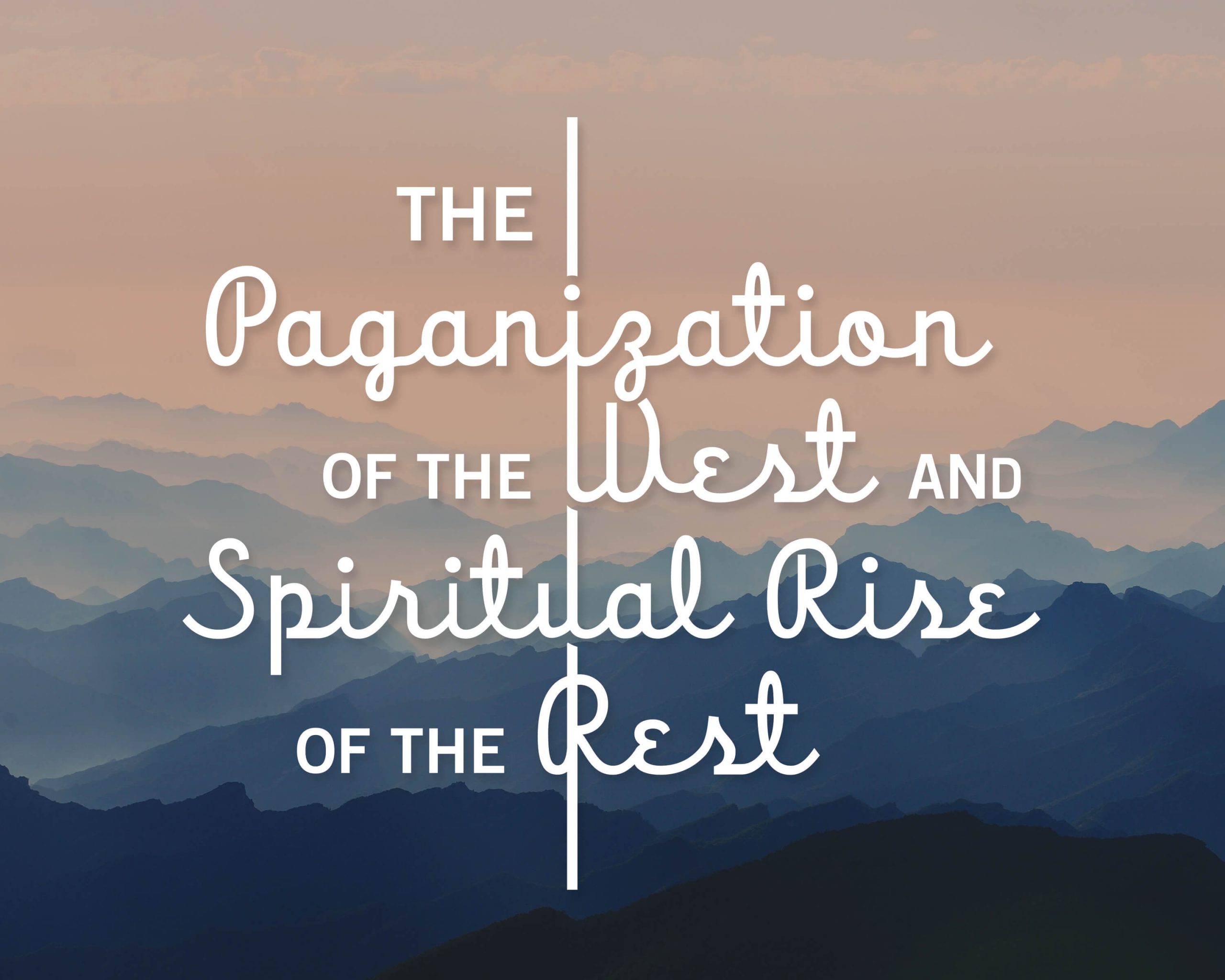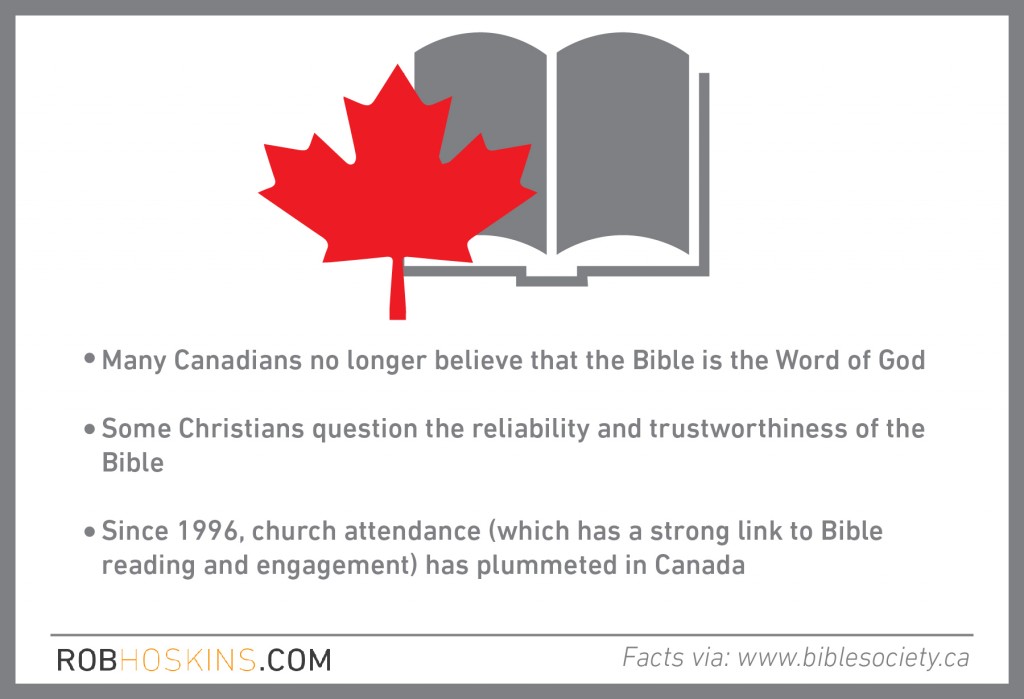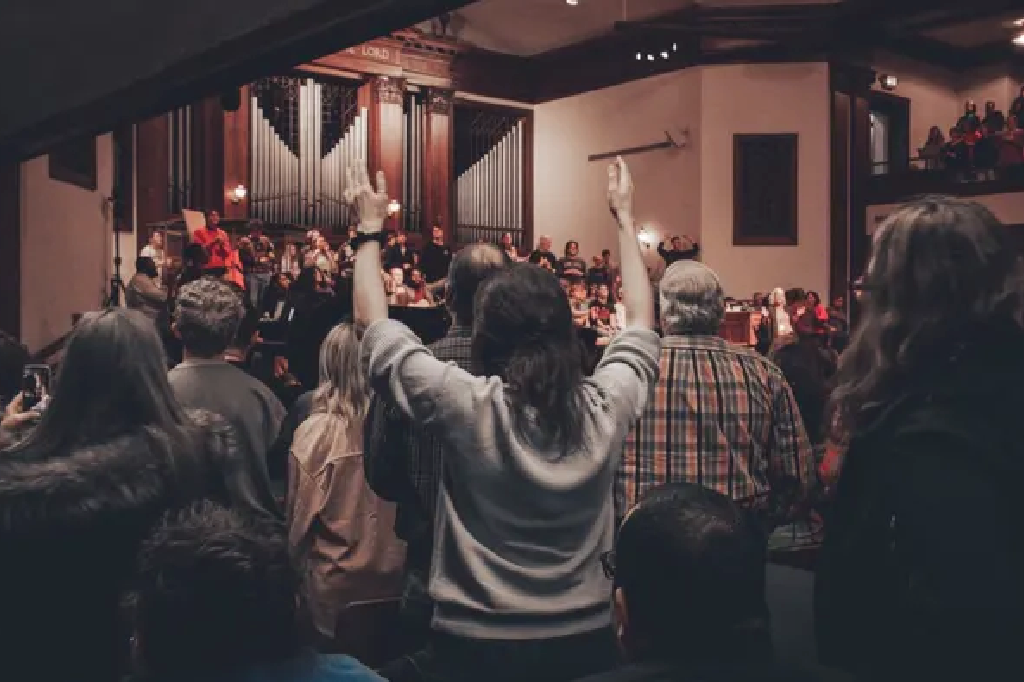A recent study revealed alarmingly apathetic Bible reading trends among Canadians. The findings hit social media with a shocking, albeit befitting hashtag:
#donewiththebible?
The study’s quantification shows that most Canadians admit they don’t regularly read and are not even interested in reading the Bible. In fact, weekly Bible reading among Canadians has declined by 60% since 1966! A mere 14% claim they actually read the Bible at least once a month. Why is Scripture engagement in such a steep decline?
In general, confidence in the Bible is at an all-time low among our northern neighbors. You might be wondering why Canadian Bible engagement trends even matter to the North American Church? Because as one of our closest neighbors, Canada is likely a leading indicator of where spirituality in the U.S. is headed.
I often speak about macro trends impacting our world today, one of them being the
 .
.
Historically the Gospel started in the East and moved westward, creating incredible growth in Europe and the Americas.
But in the past 100 years, it’s like we are watching a tennis ball bounce back from a brick wall as we have seen the Gospel moving back to the East and South. This shift is evidenced by extensive growth of the church in Latin America, Africa and India.
This reversal has created an imbalance as the population of the Church in the East and South far exceeds the population of the Church in the West.
It seems that this disheartening “un-Christian” trend in the West is presenting itself as the West becomes increasingly lethargic about religion and increasingly pagan.
And while studies like this are indeed a wake up call, we have to look at it from our Savior’s perspective—to see this “deficiency” as an opportunity. Clearly Canada is an open door for “missions” to begin right back where we started—on our own doorsteps.
The report wasn’t completely devoid of hope. It did lend insight into the Canadian trifecta. There were three factors in common with those who do participate in meaningful Bible engagement. Not only did it seem that all three were common among those with flourishing and meaningful Bible engagement, but interestingly that all three must be done intentionally:
- Community: They are involved in a worshipping community; they go to church regularly and participate in church community.
- Conversation: They discuss and explore the Bible with their friends. They’re having conversations about the Bible, often in small groups.
- Confidence: They have a growing confidence in the Bible as the way to know God and hear from Him. [2]
Canadian and U.S. Christians are awakening to a new reality that they are no longer part of ‘Christendom’. People cannot be ‘born’ into a genuine faith, cultural Christianity is fading and a rich, deep transformative relationship with Jesus, his Word and his Church is needed.
Lesslie Newbigin says of our times-
“The result is not, as we once imagined, a secular society. It is a pagan society, and its paganism, having been born out of the rejection of Christianity, is far more resistant to the gospel than the pre-Christian paganism with which cross-cultural missions have been familiar. Here, surely, is the most challenging missionary frontier of our time.”[3]
Communities that fail to provide a deeply textured faith, grounded in relevant thought, oozing with hope and filled with genuine love cannot break through the resistant strains of our Post-Christian era. A ruthless commitment to knowing and living out the Scriptures in authentic, fresh expressions has always provided the necessary nourishment for the Church to grow, no matter how rough and rocky the terrain.
You might also like learning about:
_____________________________________________________________________




